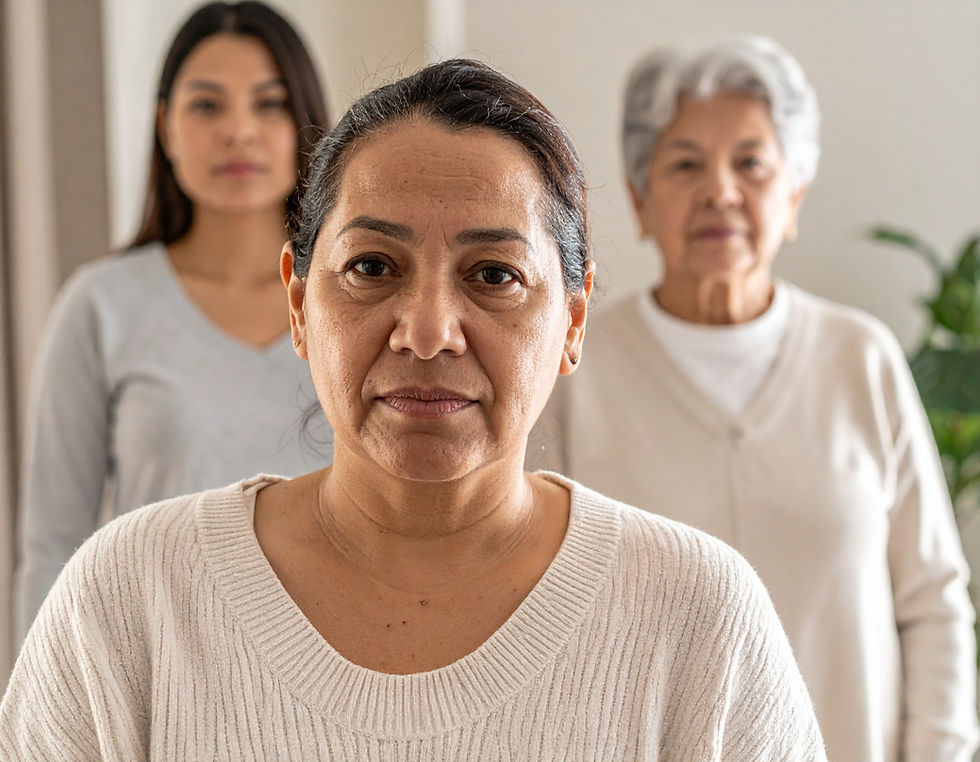Perception Determines When 'Old Age' Starts
- Research

- May 4, 2024
- 2 min read
Updated: Nov 5, 2024
What do you consider “old age”? According to a new study published in Psychology and Aging, there’s not a consensus—and the definition shifts based on several factors.

The study found that aging adults believe “old age” begins later in life than their parents and grandparents did at the same age. The researchers also found evidence that this trend of perceiving “old age” starting later has slowed over the past 20 years.
“It is unclear to what extent the trend towards postponing old age reflects a trend towards more positive views on older people and aging, or rather the opposite—perhaps the onset of old age is postponed because people consider being old to be an undesirable state,” said Dr. Markus Wettstein, the study’s lead researcher who is from Humboldt University.
The research team analyzed data from over 14,000 participants in the German Ageing Survey. The longitudinal study includes participants who live in German who were born between 1911 and 1974. Additional participants between the ages of 40-85 were also recruited throughout the study period.
The participants were asked to respond to survey questions at eight different intervals from 1996-2021 when they were between 40 and 100 years old. One of the questions was, “At what age would you describe someone as old?”
The study found interesting differences between generations:
Participants born in 1911 who reached the age of 65 believed that “old age” began at 71.
Participants born in 1956 who reached the age of 65 said that “old age” began at 74.
As individuals aged, their perception of the onset of “old age” moved further out. For example, an average participant who was 64 said that old age started at 74.7; however, at age 74, these participants believed old age would start at 76.8.
On average, the perceived onset of old age increased approximately one year for every 4-5 years of actual aging.
Other factors also played a part in determining participants’ views on the onset of “old age’:
Women, on average, believed that old age started two years later than men. This differing viewpoint between the sexes increased over time.
People who experienced worse health, were lonely and had a mindset of feeling older said old age began earlier.
People who were connected, in better health and had a mindset of feeling younger believed “old age” started later.
The researchers hypothesized that increased life expectancy as well as some improved aspects of health may contribute to this shifting mindset.
We at I Start Wondering believe that age is just a number, and that mindset primarily determines the quality of life we lead when we reach mid-life and beyond.




I am 76, and I don’t think if myself as being old at all since I have remained physically active and intellectually engaged. It’s how other people regard me, though. It’s true that you become invisible. And the medical profession treats your age, not your physical and mental ability.
My grandmother, Mother B, had a little scrap of paper on her refrigerator on which, in her beautiful script, she wrote: Age is a matter of mind; If you don’t mind, it doesn’t matter.
Mother B passed sway at the young age of 73. I say that because I held my breath that I would surpass her age. So far so good! I’m 75 and my health has improved exponentially in the last week.
Now, I believe that old age just might begin at 85. At least, I hope to live that long. Having a long bucket list and a purpose will keep me going. I’ve written my childhood memoir and my obituary. I’m prepared.